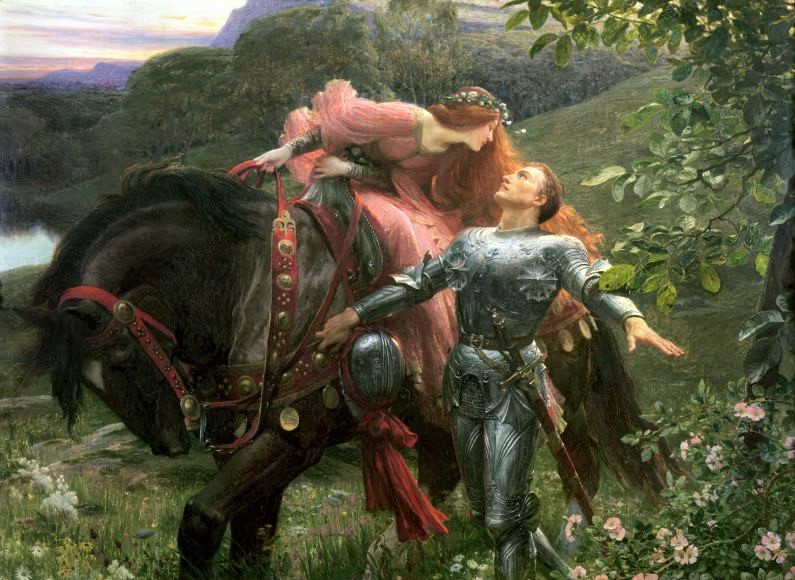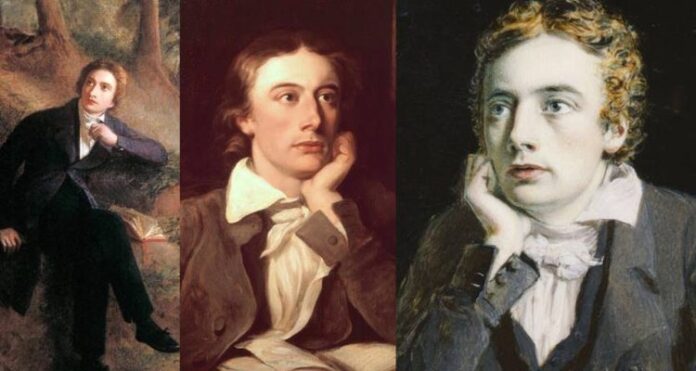By Angeliki Georgakopoulou,
Keatsian poetry has been a point of contention amongst many literary critics over the years. His work provides an accurate depiction and reflection of the Romantic era and poetic innovation. Nonetheless, John Keats’s approach to the female agency can be considered controversial and partial, when placed in today’s postmodern and feminist context.
In particular, when looking at his ballad La Belle Dame sans Merci (1819). It is interesting to note that the portrayal of femininity is paralleled exclusively to that of treachery, witchcraft, and deception. Taking into consideration Keats’s personal, but also historic and literary context, it is easy to trace this perception back to the patriarchal codes and conventions of the Regency period, as well as Keats’s personal troubled romantic life. However, by unpacking the “lady in the meads” and observing her through a modern feminist lens, we are able to discover her voice and, hence, complete the image of the wronged woman.
For Keats, the woman in his poetic oeuvre represents not only a single entity, but the entire history of female existence. As a result, in La Belle Dame sans Merci, he uses two characteristics of a woman — her feminine naïve side and her seductive and deceiving side — to comment on the difficulty of comprehending a woman’s multitude of layers.

Only one line of Keats’s poem, however, is dedicated to the lady’s presentation as “full beautiful, a faery’s child”, revealing his bias and prejudice towards the opposite gender. This attitude regarding gender portrayal is more clearly shown in the poem’s later stanzas, where the imagery used portrays the lady as a witch with her “elfin grot”, resembling nothing humane. By exaggerating the negative outcomes of the lady’s association with males “I saw their starved lips in the gloam / With horrid warning gaped wide”, Keats reinforces the perception of women as unforgiving, unloving, and dangerous. This expands on the patriarchal construction of femininity, which focuses on the representation of women as “Madonnas” or “whores”. Although much is revealed of Keats’s ignorance towards the ways, behavior, and composition of the female psychology and idiosyncrasy, this also creates a partial portrait of the lady, where the amplitude of her voice leads to a view of her as wronged.
Yet, how can this perception be overturned and subverted so as to arrive at a true and just understanding of La Belle Dame sans Merci? By recontextualizing Keats’s poem and adapting the values of the Romantic era to our own, the lady can adopt a voice of her own, so as to defend her name. One can only imagine how such an opportunity would lead to a holistic comprehension of her “deceptive” mechanisms. Maybe she would condemn the patriarchy for the restrictions imposed upon female expression and behavior or maybe she would give us the details of a completely different story. One that is not based on deception and enchantment, but rather on love, on the injustice towards women, on the rigidity of social codes and conventions, on the essence of humanity. It is only necessary for us to imagine her voice and only then will we be able to hear it loud and clear. And it will sing a different song, one that has been buried for centuries…
References
- John Keats, La Belle sans Merci (1819), Available here




